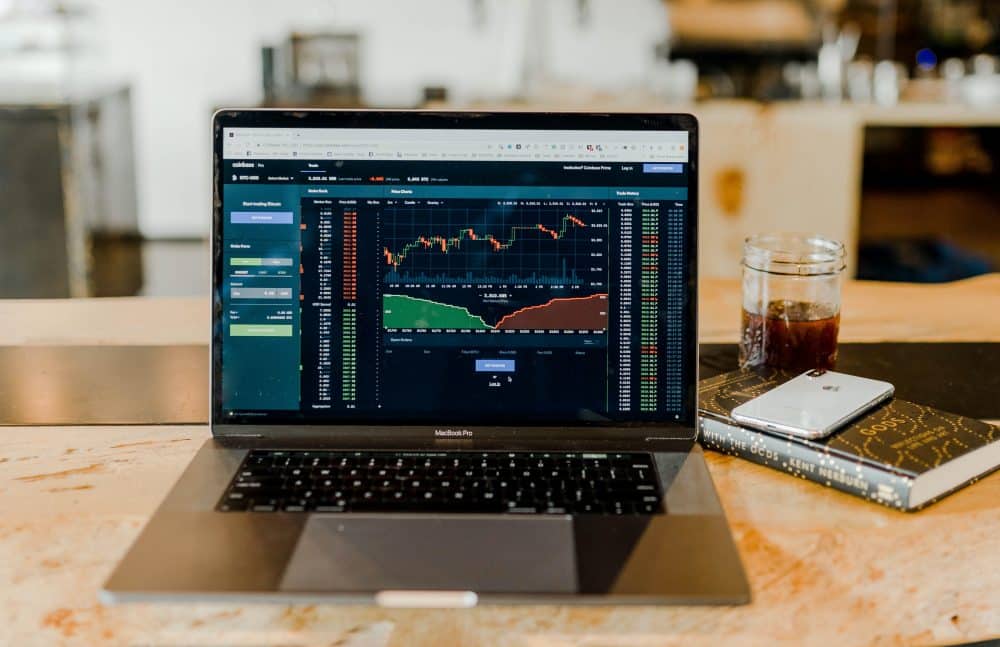
Doing your due diligence when buying a stock can make the difference between making money or losing it. Obviously, no one wants to lose money on an investment, so doing proper research is critical. This is by no means a comprehensive list, and many factors are beyond the scope of this short article, but here are a few basic things to look for when stock picking.
Company Health
Before buying a company’s stock you will want to be sure that the company has a healthy balance sheet and business model. Here are a few things to look for.
First, understand how the company makes money. What product or service are they providing, and how profitable is it? What is the long-term outlook for the company? For investors that are looking for income it is important to try and find stocks with healthy balance sheets and durable profits paying dividends. As this article comparing the ARKF Dividend and XLF Dividend shows, a compelling case can be made that many old-fashioned financial stocks fit this profile. While ETFs like Cathie Wood’s ARKF might be exciting, the companies it holds are actually diluting your ownership. In contrast, XLF, which owns stocks like Buffett’s Berkshire Hathaway, JP Morgan, Bank of America and many other household names, is paying a significant dividend.
Does the company have a niche that is not easily duplicated by possible competitors? In other words, is there a high barrier to entry?
Research where the company is going. Are they expanding into new markets and introducing new products? Has their growth slowed in recent years? Knowing the answers to these questions can increase your chances of scoring a winning stock.
Macro Forces
Macroeconomic forces play a huge role in a stock’s performance. Paying attention to overall market conditions can help you make money in any market.
A good example is a recession. During a recession consumer discretionary spending goes down and credit tightens. This tends to favor companies that provide products that people need no matter the conditions. Energy companies, and food and consumer staples do well as an example. Recessions also tend to favor larger more established companies who have the capital to weather an economic downturn.
Understanding these macro forces and how different sectors of the economy fair during different conditions can help you make intelligent stock picking choices.
Personal Investing Goals
What type of investor are you? Do you have an appetite for risk or are you more conservative? Are you investing for the long-term, or are you looking to be a trader and hold positions for a short time? Knowing what type of investor, you are and knowing what your strategy of investing is can help you make better investment choices.
Investing in options and holding stocks for less than a month is a much different approach to buying a stock that you intend to keep for years or decades. Are you looking for growth or income? One will cause you to research smaller startup companies while the latter will cause you to look for steady dividend payers.
Conclusion
Doing due diligence when buying a stock can be the difference between making money and losing it. There are endless factors to investigate all the way from macro forces down to the technical analysis of a stock itself. Understanding a company and your personal investing style are all keys to success. Once you understand some of these factors you will be able to make more intelligent investing decisions.
Read Also:
What is the Best Day of the Month to Buy Stocks?
The Best Stock Investment Hacks for Beginners
Is it Time to Invest in Costco Stock?
P.S. If you’re looking for more on this, and you want a delightful little distraction, consider reading Perpetualprudence’s Its All About You. Its a fun little essay on the virtues of individual investing.

Based in the Pittsburgh, PA area, Brian holds full-time employment as a Warehouse Manager for an electronics firm. Brian enjoys wealth building, investing, gardening and the great outdoors. Brian holds a B.A. in Environmental Studies from the University of Pittsburgh and an MBA from Robert Morris University.










